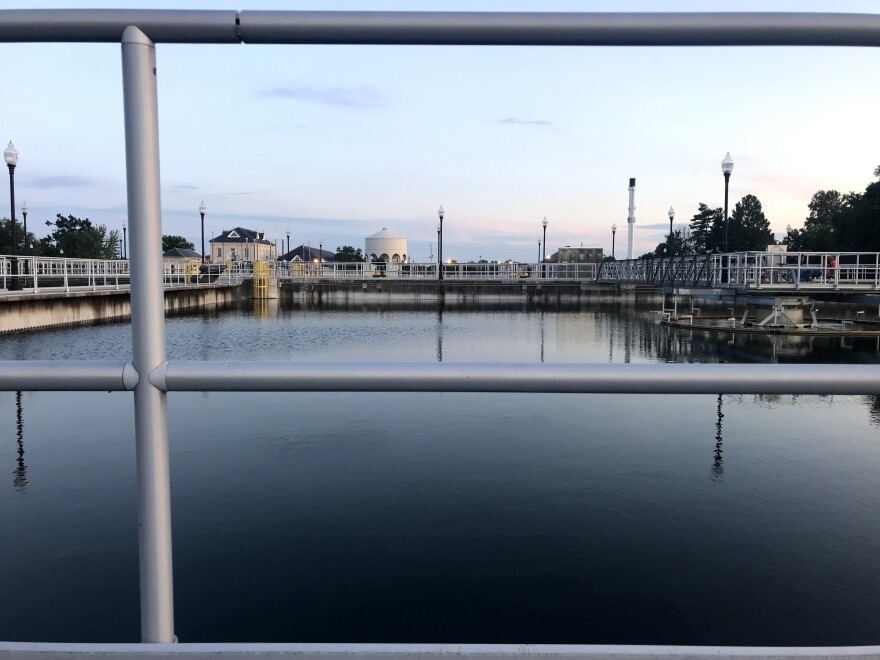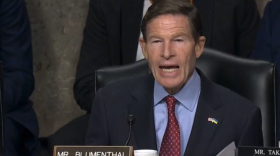Many of Kentucky’s rural water systems are deteriorating, facing aging infrastructure and financial constraints.
Freezing temperatures caused widespread water issues as recently as last month, but some counties have long struggled to update failing drinking water systems. The Martin County Water District, for example, experienced 68% water loss last year, and has been in crisis for decades.
A bill to create a revolving loan program for communities struggling to update their water systems and meet regulatory needs passed a House committee Tuesday, but several legislators expressed concerns that it was not adequate to address the crises in the state.
Republican Rep. Josh Bray from Mount Vernon said the goal of his bill is to provide another option for districts to get cash fast to deal with emergencies.
“These programs are designed for districts who don't qualify for anything,” Bray said. “You've got districts all across the state who aren't current on audits, they may have excessive water leakage, so they can't get money. This is set up to provide them with that.”
But some lawmakers raised concerns over the repayment element of the program and its administration. Republican Rep. Bobby McCool, whose district includes Martin County, asked why the program was set up as a loan program, especially since it is designed to help the most vulnerable areas.
“We're talking about distressed areas. Not only distressed about water, but distressed in many other areas,” McCool said. “I still have a hard time getting over the hurdle of just being a loan.”
McCool voted “no” alongside two Democrats, with 16 others voting in favor of the legislation. Three lawmakers passed on voting at the committee hearing. It now moves to a vote on the House floor.
Bray said he understands concerns over it being a loan versus grant program, but stressed it is one option that allows for speedy access to emergency funds, versus slower grant processes. Bray said there are two areas in his own district that could benefit from such a loan program.
“I’ve got two utilities that don’t qualify for any kind of financing anywhere. So if they wanted to go to the bank, they couldn’t get a loan even if they wanted to,” Bray said.
He pointed to Livingston, a city in his district that is behind on its auditing requirements. Bray said they have issues with their sewer plant, but are unable to access certain federally-funded resources until they come into compliance with Safe Drinking Water Act requirements.
Democrats lambasted the House budget proposal for not including more water infrastructure funding as it passed the chamber last month. The governor called for $500 million in state general fund dollars in fiscal year 2025 for the Better Kentucky Cleaner Water program — tens of millions more than the funds designated in the GOP-backed House budget.
Louisville Democratic Rep. Rachel Roarx attempted to file a floor amendment to the budget when it passed last month to significantly boost spending on water and wastewater infrastructure. Her amendment was ruled out of order because of the expedited process.
“The number one way to kill your community was to forget about the water, not just the quality, but also the quantity,” Roarx said. “It's unfortunate that we have not considered ways to make this bill better in regards to our water grants.”
The average age of a water treatment plant in Kentucky is 38 years old, the average water main is 40 years old, and the state still has an estimated 40,000 lead service lines according to a 2023 Kentucky Rural Water Association report.
Many of the state’s water utilities lack a large enough customer base to cover the costs of emergency repairs and even regular maintenance. Many also struggle with qualified staffing. The result is deteriorating water quality and reliability, and when emergencies occur they are expensive to address.
A specific budget ask is not attached to the bill passed Tuesday. Bray said the loan recipients must also submit regular reports to the Kentucky Infrastructure Authority, which would administer the program, as part of a long-term planning requirement.
“They have to submit a corrective action plan so that they implement best practices so that they don't continue to make the same mistakes,” Bray said.
The infrastructure authority submitted a letter to Bray and the committee saying the agency did not have the expertise necessary to handle loan recipients' progress and that the agency was not equipped to turn around applications in the 30 day period laid out in the bill.
Bray said he disagrees and does feel the authority is equipped to handle the program.
“I would disagree that the expertise isn't there,” Bray said. “It's not something they have ordinarily done. But I feel like it's something they could easily do.”
State government and politics reporting is supported in part by the Corporation for Public Broadcasting.






